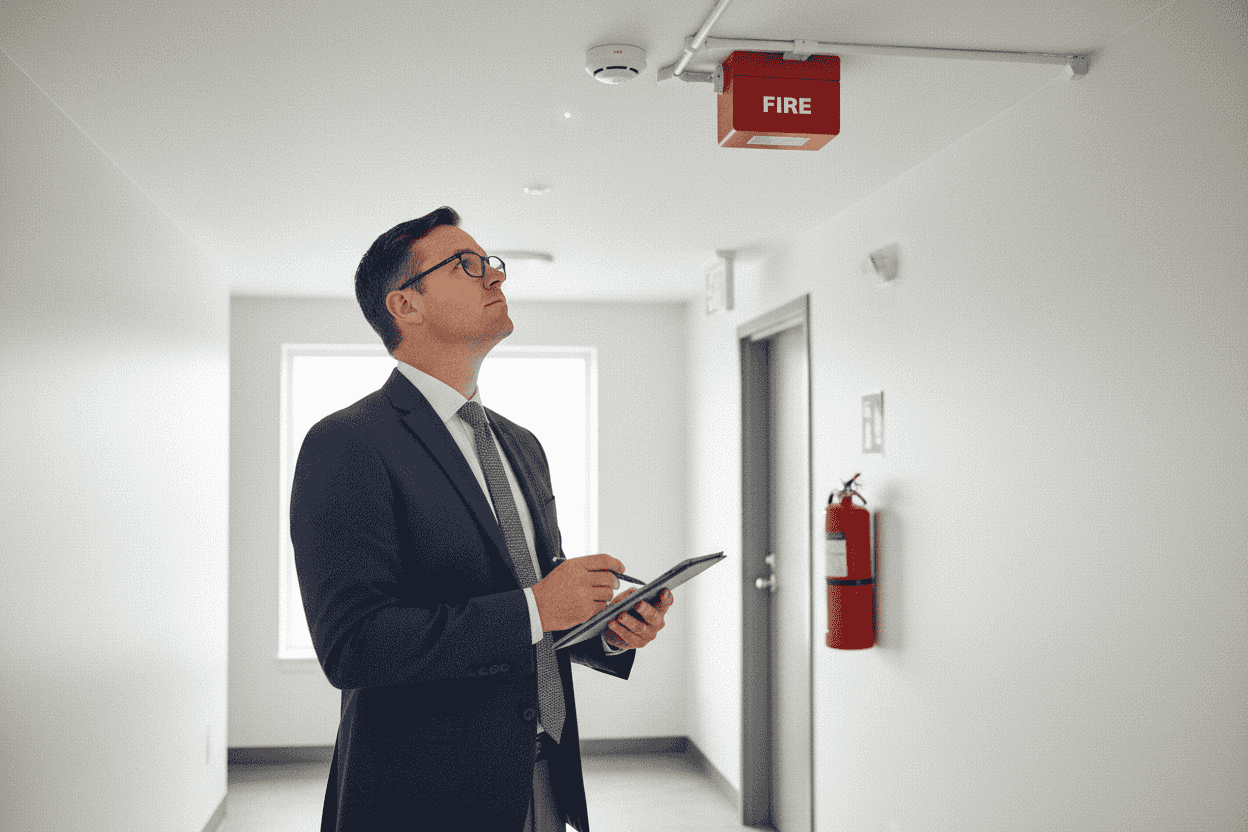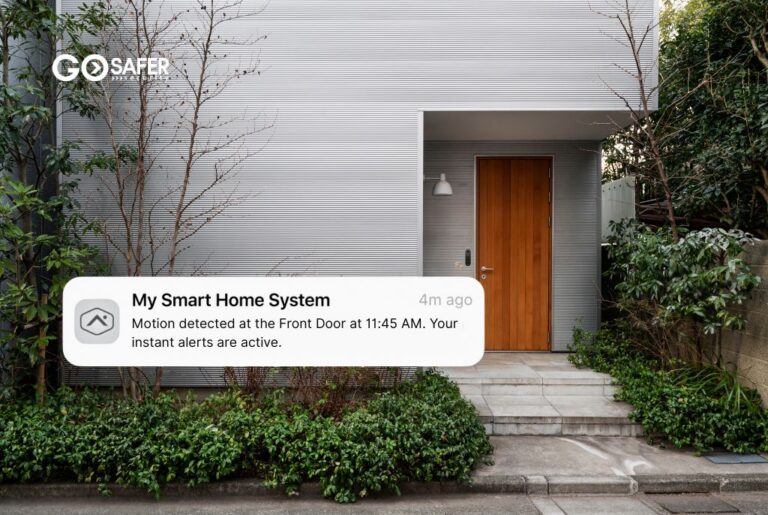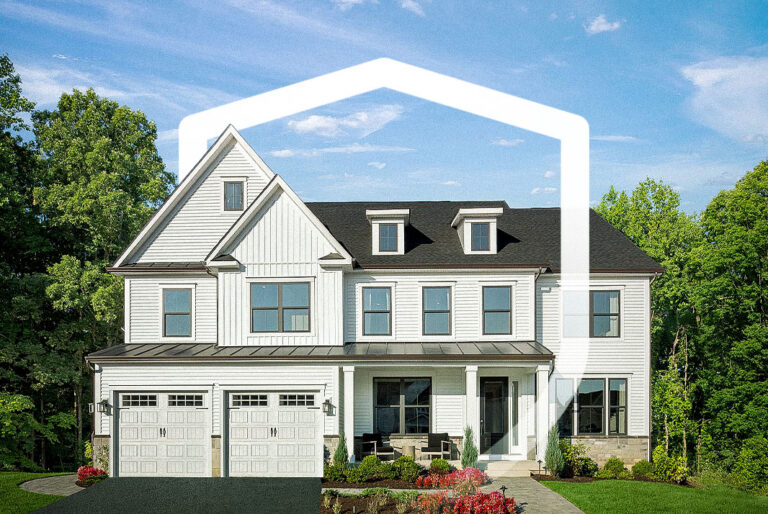If you’re a landlord, staying compliant with fire alarm requirements isn’t just smart; it’s the law. Between keeping tenants safe and avoiding hefty fines, understanding your responsibilities when it comes to fire alarms and smoke detectors is crucial. Whether you’re managing a single-family rental or a multi-unit building, this guide is here to break it all down in plain, actionable steps.
Table of Contents
ToggleWhy Fire Alarm Compliance Matters
Protecting Lives
The number one reason for installing fire alarm systems is to protect human life. Fires can escalate within minutes, and the presence of properly functioning smoke detectors and alarms can mean the difference between life and death.
Legal Consequences
Non-compliance with the Maryland smoke alarm law can result in fines, lawsuits, and even criminal charges in the case of injuries or fatalities.
Understanding Maryland’s Fire Alarm Laws
Maryland law requires landlords and homeowners to install and maintain smoke alarms that meet specific safety standards:
- 10-Year Law: All smoke alarms must be replaced when they reach 10 years of age.
- Sealed-Battery Alarms: Battery-only smoke alarms must use sealed-in, long-life (10-year) batteries with a “hush” feature to silence false alarms.
- Hardwired Systems: Homes built after July 1, 1975 must have hardwired smoke alarms, and homes built after 1990 require hardwired alarms with battery backup. Newer homes must have interconnected alarms.
- Location Requirements: Alarms must be installed on every level of the home, inside each bedroom, and outside all sleeping areas.
You can find details about the fire alarm system installation, and requirements with this guide.
Types of Alarms Required by Law
Smoke Detectors
- Recommended: Photoelectric type (preferred in Maryland due to fewer false alarms)
- Sealed-in 10-year batteries (if not hardwired)
- Must be UL-listed
Carbon Monoxide Detectors
- Required if the property has fuel-burning appliances or an attached garage
Combination Units
- Dual smoke and carbon monoxide detectors are acceptable as long as they meet state standards.
Placement Rules for Alarms
To meet fire alarm requirements, alarms must be installed:
- Inside each bedroom
- Outside each sleeping area
- On every level of the home, including basements
Multi-family properties and larger homes often benefit from professional fire alarm system inspections to ensure compliance.
Special Considerations for Landlords
Tenant Education
Landlords should provide fire safety education materials to tenants, including guidance on alarm testing and evacuation routes.
Maintenance Obligations
Landlords are responsible for maintaining and testing fire alarm systems. Tenants must be notified before testing, and records of maintenance should be kept.
Replacement Schedule
Even if an alarm seems functional, it must be replaced every 10 years by law.
Monitoring Your System
Having a monitored fire alarm system provides extra protection and ensures help is dispatched even if no one is home. Go Safer Security offers professional fire alarm monitoring in Rockville, Bethesda, Silver Spring, and across Montgomery County, Maryland.
Costs of Installing and Maintaining Fire Alarms
The cost of compliance is far less than the potential cost of legal penalties, or worse, a tragedy. Here’s a quick breakdown of costs:
- Single smoke detector: $20–$50
- Hardwired system (per unit): $300–$600
- Monitoring service: $20–$60/month
For a deeper dive, explore this comprehensive guide on fire alarm system costs.
Commercial Properties and Fire Alarm Requirements
Landlords with commercial or mixed-use buildings face stricter codes. These may include:
- Central control panels
- Sprinkler integration
- Emergency lighting
- Fire doors and pull stations
If you’re managing larger spaces, consult the experts in commercial fire alarm solutions to stay compliant.
Common Mistakes Landlords Make
- Using outdated smoke detectors beyond the 10-year mark
- Neglecting regular inspections
- Failing to document maintenance or tenant education
- Installing the wrong type of alarms (e.g., ionization instead of photoelectric)
How to Stay Compliant
- Audit your properties to assess current alarm types and placement.
- Upgrade old units to meet Maryland’s current standards.
- Schedule inspections through a certified fire safety provider.
- Train your property managers or maintenance teams on compliance.
- Maintain clear records of all alarm maintenance and replacements.
Need help upgrading your fire alarms? Start with a life safety system consultation.
Ensure Your Property Meets Fire Alarm Code Requirements
Don’t leave your property, or your tenants, at risk. If you’re unsure about your current system or simply want to ensure you’re compliant with Maryland’s smoke alarm regulations, request a fire alarm inspection or installation service today.
Conclusion
Complying with fire alarm requirements in Maryland isn’t just a box to check; it’s your legal and moral duty as a landlord. From installing 10-year battery smoke alarms to ensuring full system monitoring and inspections, every step you take enhances safety and peace of mind for your tenants.
FAQs
1. What is the Maryland law on smoke alarms in rental units?
It requires photoelectric smoke detectors with sealed 10-year batteries on every level of a home and inside/outside bedrooms.
2. Can I use old battery-operated alarms if they still work?
No. All alarms must meet updated standards, including the 10-year battery requirement.
3. Are landlords responsible for fire alarm maintenance?
Yes, including installation, testing, documentation, and replacements.
4. How often should alarms be inspected?
Visual checks monthly, formal inspections annually. Inspection services are available for compliance.
5. What’s the best type of fire alarm for rental properties?
Photoelectric alarms with 10-year sealed batteries, or hardwired systems in newer buildings, are the best fit.







